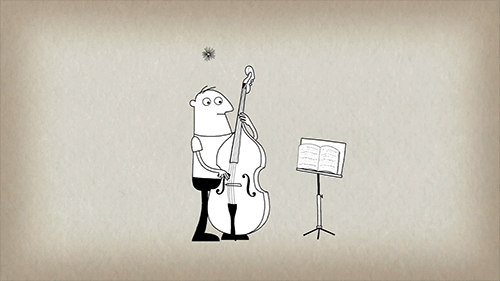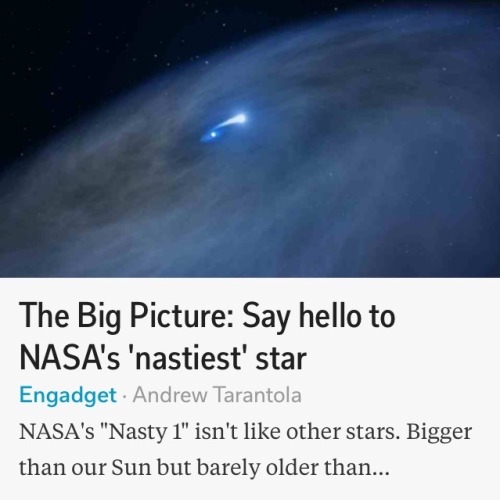Source [x]
![Source [x]](https://64.media.tumblr.com/c67e16b83f88fe48da4656147229f385/tumblr_nz90mw4OiA1u1i4d4o1_500.jpg)
![Source [x]](https://64.media.tumblr.com/a60c74bcd55fb8555c574abb6eb4a0aa/tumblr_nz90mw4OiA1u1i4d4o2_500.jpg)
![Source [x]](https://64.media.tumblr.com/35e92a53a2e18de1283034cd6d7999ea/tumblr_nz90mw4OiA1u1i4d4o3_500.jpg)
![Source [x]](https://64.media.tumblr.com/4c1566aefd626f49bf3bfaf0c2e04616/tumblr_nz90mw4OiA1u1i4d4o4_500.jpg)
![Source [x]](https://64.media.tumblr.com/61c3673d595a1d1ddb2bd9c6d25862ae/tumblr_nz90mw4OiA1u1i4d4o5_500.jpg)
![Source [x]](https://64.media.tumblr.com/3830b9a2ede2b1021bb8596b1bc4bb6f/tumblr_nz90mw4OiA1u1i4d4o6_500.jpg)
source [x]
More Posts from Science-is-magical and Others



Women scientists made up 25% of the Pluto fly-by New Horizon team. Make sure you share this, because erasing women’s achievements in science and history is a tradition. Happens every day.
.
http://pluto.jhuapl.edu/News-Center/News-Article.php?page=20150712

A Powerful Solar Flare : It was one of the most powerful solar flares in recorded history. Occurring in 2003 and seen across the electromagnetic spectrum, the Sun briefly became over 100 times brighter in X-rays than normal. The day after this tremendous X 17 solar flare – and subsequent Coronal Mass Ejection (CME) – energetic particles emitted from the explosions struck the Earth, creating auroras and affecting satellites. The spacecraft that took these frames – SOHO – was put in a turtle-like safe mode to avoid further damage from this and subsequent solar particle storms. The featured time-lapse movie condenses into 10 seconds events that occurred over 4 hours. The CME, visible around the central sun-shade, appears about three-quarters of the way through the video, while frames toward the very end are progressively noisier as protons from the explosions strike SOHO’s LASCO detector. One this day in 1859, the effects of an even more powerful solar storm caused telegraphs on Earth to spark in what is known as the Carrington Event. Powerful solar storms such as these may create beautiful aurora-filled skies, but they also pose a real danger as they can damage satellites and even power grids across the Earth. via NASA







Better late than never!
Here’s a comic about Cosmic Strings!
https://www.space.com/9315-cracks-universe-physicists-search-cosmic-strings.html
https://www.sciencedaily.com/releases/2008/01/080120182315.htm



How playing an instrument benefits your brain
Recent research about the mental benefits of playing music has many applications, such as music therapy for people with emotional problems, or helping to treat the symptoms of stroke survivors and Alzheimer’s patients. But it is perhaps even more significant in how much it advances our understanding of mental function, revealing the inner rhythms and complex interplay that make up the amazing orchestra of our brain.
Did you know that every time musicians pick up their instruments, there are fireworks going off all over their brain? On the outside they may look calm and focused, reading the music and making the precise and practiced movements required. But inside their brains, there’s a party going on.
From the TED-Ed lesson How playing an instrument benefits your brain - Anita Collins
Animation by Sharon Colman Graham
Uhmm, how exactly were all of those megafauna able to grow that large and function??? And how the fuck was that giant bird actually able to fly????????
Realistic answer? Mostly because humans hadn’t come around and hunted them all to extinction yet. Dinosaurs are exempt from this because they vastly predated us, but almost anything that coincided with our timeline, we killed.
We are, for our relatively small size and frail, sometimes clumsy physical characteristics, a TERRIFYING species.
Evolution has produced all kinds of Big Shit. Ever seen a Paraceratherium?


Or a size chart for Sauropods that wasn’t produced before 1970?


Evolution likes to make things big. It tries this all the time. Whenever there’s a plentiful food source and enough space, things just get bigger and bigger.
The largest animal to have ever lived is alive right now. It’s the blue whale. And it’s truly a masterpiece of evolution’s drive to Go Bigger.



HOW THIS HAPPEN.
Basically, because they live in the ocean, space isn’t really an issue for them, and thanks to buoyancy, neither is their frankly ALARMING weight. The only real limit to their size is chemistry – whether they can possibly metabolize enough energy fast enough to stay alive at their size. Blue whales are estimated (having, for obvious reasons, never been measured in one piece) to be able to reach over 200 tons. As an average weight. Fluctuating with their feeding season. This was for a 98 foot long whale. The longest whales ever measured were 110 feet and 109 feet, both females. (Males tend to be slightly shorter, but heavier at any given length).
A blue whale can hold over 90 tons of food and water in its mouth.
They need 1.5 million kilocalories of food per day.
Blue whales are MASSIVE.
They are not the LONGEST animal in the world, though, just the heaviest. The longest is likely one of two things: the Lions Mane Jellyfish or the Bootlace Worm. The longest recorded Lions Mane Jellyfish washed up on shore with tentacles measuring 120 feet. It is unknown if they can be longer than this, but certainly possible given how fragile they are and the fact that this is just one that happened to get washed up on a beach.
The longest recorded bootlace worm SMASHES this record, but because of its stretchy body and the date of the recording (1864), the scientific accuracy is disputed. It also washed up on shore and measured 180 feet.
How far off topic am I this time?
Anyway yes animals get big sometimes. It helps deter predators when you’re too big to be hunted by anything. The only natural predator of the blue whale is killer whales. Regarding bears specifically, Brown Bears are in far more trouble than Black Bears because the Brown Bear line trends toward going bigger, which makes them easier targets for humans, while Black Bears have evolved to be shy and stealthy and avoid human contact. As a result, Brown bears are far larger, but far more likely to be driven to extinction by humans. Nature functions just fine if it’s left alone. We just ruin everything we touch. That’s why the largest individual crocodiles still living right now are the ones that have learned to avoid humans at all costs: conservation laws have not protected crocodiles from poaching long enough for them to get really, really big, even though we have significant historical records of crocodiles larger than what we generally see now. At least some of those records are considered to be reliable and put a couple extant crocodile species well over 20 feet – some over 22. The largest reliably measured crocodile was Lolong, a Saltwater crocodile in the Philippines who measured 20 feet 3 inches and died a few years ago.
And Argentavis magnificens was able to fly because it was designed to. Even with a massive 24 foot wingspan, it only weighed around 175 pounds, because birds have very lightweight skeletons. As impressive as the size was,

a living bird of that size probably weighed about as much, if not a bit less, than the man standing next to it. The surface area of its wings would have been sufficient to keep it in the air, mostly by gliding the way you see large modern birds of prey do. It would have resembled a condor or vulture, just much larger.




ELI5:How come people can't be cryogenically frozen safely as the ice crystals destroy the cell membranes, but sex cells such as sperm are kept frozen for long periods of time yet remain functional?
I work in a lab where we freeze down cells all of the time. We freeze our cells in a medium that contains 5% DMSO, which among other things can be used as a cryoprotectant. However, DMSO is also toxic to cells at the concentrations necessary for cryoprotection. Consequently, when you freeze cells in DMSO, you add the DMSO medium at ice-cold temperatures and don’t allow the cells to warm up. When you later thaw the cells, you have to dilute out the DMSO as quickly as possible without causing osmotic shock, which can pop the cells. Such restrictions on freezing and thawing would basically be impossible to control at the level of a complete organism.
However, to contradict a lot of previous posts, individual cells can be recovered from freezing with high viability. When performed properly (and this varies quite a bit by cell type), you can expect >90% of cells to be alive following thaw.
The chemicals that allow cells to survive freezing are toxic to the body. Keeping the cells cold minimized the damage that this chemical does to the cells. With single cell solutions, adding the chemical at ice-cold temperatures and immediately diluting it out when you thaw the cells can keep 90% of the cells alive. There’s no way to do this with an intact body.
It’s also worth noting that this is probably not the only reason that this technique doesn’t scale to organisms.
Explain Like I`m Five: good questions, best answers.
-
 naturalistadibordo reblogged this · 2 years ago
naturalistadibordo reblogged this · 2 years ago -
 naturalistadibordo liked this · 2 years ago
naturalistadibordo liked this · 2 years ago -
 happytrendy liked this · 2 years ago
happytrendy liked this · 2 years ago -
 gusepeh15 liked this · 2 years ago
gusepeh15 liked this · 2 years ago -
 ultradeepstarlightcollector liked this · 3 years ago
ultradeepstarlightcollector liked this · 3 years ago -
 adalua liked this · 3 years ago
adalua liked this · 3 years ago -
 superbhumanoidspytoad reblogged this · 4 years ago
superbhumanoidspytoad reblogged this · 4 years ago -
 superbhumanoidspytoad liked this · 4 years ago
superbhumanoidspytoad liked this · 4 years ago -
 batatasaldas liked this · 4 years ago
batatasaldas liked this · 4 years ago -
 l-u-c--i--f-e-r liked this · 4 years ago
l-u-c--i--f-e-r liked this · 4 years ago -
 aki-far liked this · 4 years ago
aki-far liked this · 4 years ago -
 topsykrettsx reblogged this · 5 years ago
topsykrettsx reblogged this · 5 years ago -
 stinkypolar reblogged this · 5 years ago
stinkypolar reblogged this · 5 years ago -
 stinkypolar liked this · 5 years ago
stinkypolar liked this · 5 years ago -
 argeliuz liked this · 5 years ago
argeliuz liked this · 5 years ago -
 4lifesgood liked this · 5 years ago
4lifesgood liked this · 5 years ago -
 lottiiib liked this · 5 years ago
lottiiib liked this · 5 years ago -
 roxybaisley reblogged this · 5 years ago
roxybaisley reblogged this · 5 years ago -
 alvaseekerofthespurnedunive-blog liked this · 5 years ago
alvaseekerofthespurnedunive-blog liked this · 5 years ago -
 deactivated-account-anon liked this · 5 years ago
deactivated-account-anon liked this · 5 years ago -
 cozyshelterfromcapitalism reblogged this · 5 years ago
cozyshelterfromcapitalism reblogged this · 5 years ago -
 cozyshelterfromcapitalism liked this · 5 years ago
cozyshelterfromcapitalism liked this · 5 years ago -
 untitledevolution liked this · 5 years ago
untitledevolution liked this · 5 years ago -
 hard1up reblogged this · 5 years ago
hard1up reblogged this · 5 years ago -
 hard1up liked this · 5 years ago
hard1up liked this · 5 years ago -
 21panda-cakes reblogged this · 6 years ago
21panda-cakes reblogged this · 6 years ago -
 xxwinchesterx liked this · 6 years ago
xxwinchesterx liked this · 6 years ago









